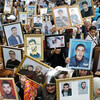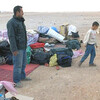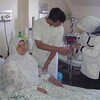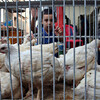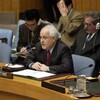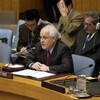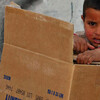
UN warns of humanitarian crisis in Palestine
20 April 2006
The current humanitarian emergency followed the outbreak of violence in September 2000 and is a result of restrictions on Palestinian freedom of movement, military operations, land confiscation and levelling and the construction of the Barrier. A serious intensification of this situation is now possible following the victory of the Hamas party in the Palestinian Legislative Council elections held in January 2006. has stopped handing over to the PA VAT and customs taxes that it collects on Palestinian goods on its behalf. Recently however, the GoI has announced that it would use a proportion of this money to pay for electricity, water and fuel costs owed to Israeli companies. At the same time, Western donors signalled their intention to review their funding support to the PA. Read more about UN warns of humanitarian crisis in Palestine



